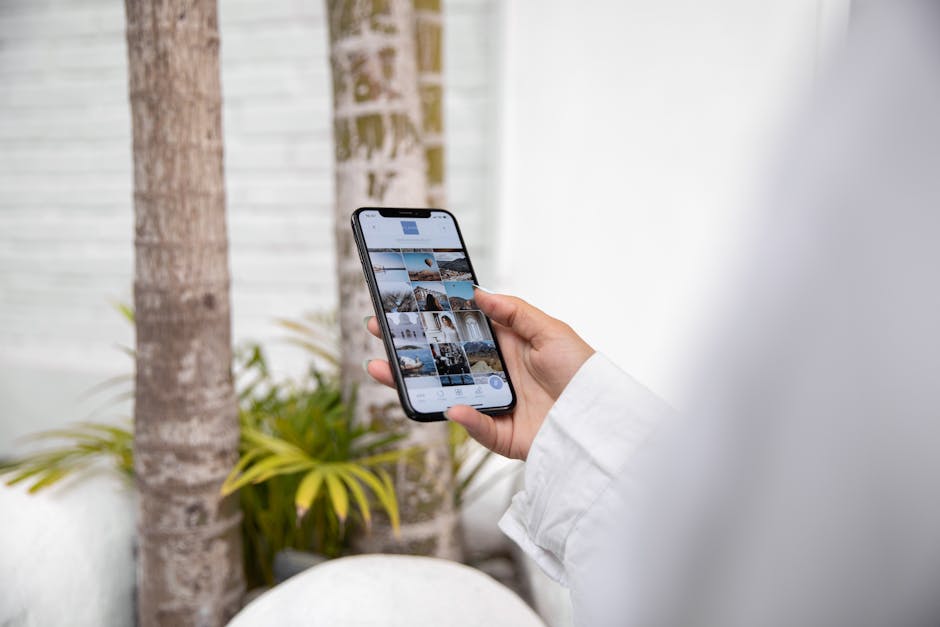Monetizing Your Travel Blog Through Sponsored Posts and Collaborations
Monetizing a travel blog has become an appealing option for many content creators who want to turn their passion for exploring new places into a profitable venture. Sponsored posts and brand collaborations are two of the most common ways to generate income. These methods not only provide financial support but also offer bloggers the opportunity to establish long-term relationships with brands that align with their content. While the prospect of earning money from blogging can seem straightforward, there are several factors to consider before diving into these strategies.

Sponsored posts involve working with companies or tourism boards that pay bloggers to feature products, services, or destinations within their content. Collaborations can take various forms, from affiliate partnerships to free trips in exchange for reviews or social media exposure. For travel bloggers looking to monetize their platform, understanding how to negotiate deals, maintain authenticity, and create value for both their audience and sponsors is crucial. Let's explore how you can leverage these opportunities effectively.
Understanding Sponsored Posts
Sponsored posts are a popular way for travel bloggers to earn money by promoting a brand’s product or service. Brands will typically approach bloggers whose audience aligns with their target demographic, paying them to write articles or create social media content featuring their offerings. For example, a hotel chain might sponsor a post where a blogger shares their experience staying at one of their properties.
To maximize success with sponsored posts, bloggers should:
- Ensure the sponsored content matches their usual style and subject matter.
- Disclose the sponsorship to maintain transparency with readers.
- Negotiate fair compensation based on audience size and engagement rates.
One of the key challenges is balancing sponsorships with maintaining trust among your followers. Audiences tend to value authenticity, so it’s important that any sponsored content feels genuine rather than forced or overly promotional.
Navigating Brand Collaborations
Brand collaborations encompass various forms of partnerships between bloggers and companies. These can include affiliate marketing programs, long-term ambassador roles, or even free trips in exchange for coverage. A successful collaboration should benefit both parties, brands get exposure to new audiences while bloggers receive compensation or perks like free travel.
There are several ways to structure collaborations:
- Affiliate Programs: Bloggers promote products and earn a commission on sales generated through unique referral links.
- Ambassador Roles: Bloggers work with a brand over an extended period, becoming a representative for the company across various campaigns.
- Press Trips: Companies invite bloggers on fully paid trips in exchange for coverage through blogs or social media posts.
A key advantage of collaborations is that they often provide more creative freedom compared to traditional sponsored posts. Bloggers can showcase a brand’s product or service in a way that feels natural while still adhering to any agreed-upon guidelines from the company.
The Importance of Audience Engagement
For brands, the primary appeal of working with travel bloggers lies in their ability to reach highly engaged niche audiences. Followers of travel blogs are often seeking inspiration for future trips or product recommendations related to travel gear, accommodations, and experiences. This gives bloggers significant influence when it comes to consumer decision-making.
The size of your audience isn’t always the most critical factor when negotiating deals; engagement rates can be equally important. Brands look at how actively your followers interact with your content through comments, likes, shares, and clicks on affiliate links. Even if your blog has fewer visitors than larger platforms, high engagement can still make you attractive to potential sponsors.
Finding Sponsorship Opportunities
If you’re ready to monetize your blog through sponsorships and collaborations, there are several ways to find potential partners:
- Networking at Industry Events: Attend tourism conferences or press events where you can connect directly with brands looking for influencers in the travel space.
- Blogger Networks: Platforms like Mediavine and TravelPayouts act as intermediaries between brands and influencers, offering pre-established opportunities for collaborations.
- Pitching Directly: Don’t hesitate to reach out directly to brands that align with your blog’s message, craft personalized pitches highlighting what you bring to the table in terms of audience reach and expertise.
The key is being proactive without compromising your blog’s integrity. Choose partnerships that feel like a natural fit for both you and your audience rather than simply accepting every opportunity that comes along.
Legal Considerations and Best Practices
As with any business venture involving financial transactions, there are legal considerations when monetizing your travel blog through sponsored posts and collaborations. The Federal Trade Commission (FTC) in the U.S., for instance, requires full disclosure whenever a post is sponsored or includes affiliate links (ftc.gov). Not adhering to these guidelines could result in penalties for both the blogger and the sponsoring company.
A few best practices include:
- Full Transparency: Always disclose paid partnerships clearly within your blog posts or social media captions (e.g., #ad or #sponsored).
- Contract Agreements: Ensure there is a written agreement outlining deliverables, payment terms, usage rights for content created during collaborations, etc.
- Content Ownership: Establish who owns the rights to any content produced under sponsorship agreements, this may include photos taken during press trips or reviews written about products/services.
Sponsorships and collaborations present excellent opportunities for travel bloggers looking to generate income while sharing their adventures. From crafting engaging sponsored posts that resonate with readers to fostering long-term brand partnerships, monetizing your blog requires careful planning and strategy. Remember to stay authentic while balancing commercial interests with audience trust, this will ensure sustained success as you continue growing both creatively and financially in this space.
Scaling Your Travel Blog Beyond Sponsorships: Diversifying Revenue Streams

While sponsored posts and brand collaborations offer lucrative opportunities for travel bloggers, it’s worth exploring other revenue streams that can supplement these income sources. Diversifying your blog’s monetization strategy not only spreads risk but can also provide more financial stability in the long run. As the digital content landscape expands, bloggers are increasingly finding innovative ways to monetize their platforms without relying solely on sponsorships.
Here are several additional methods you can consider to expand your blog's earning potential:
- Digital Products: If you have expertise in a particular area (whether it's travel photography, itinerary planning, or budgeting for long-term travel) consider packaging this knowledge into digital products. These could include eBooks, courses, or downloadable guides that you sell directly through your blog. By offering valuable resources tailored to your audience, you not only enhance user engagement but also create a steady stream of passive income.
- Membership and Subscription Models: Consider implementing a membership or subscription model where readers pay a monthly fee for premium content. Platforms such as Patreon allow creators to offer exclusive benefits to their most loyal followers. For travel bloggers, these perks could include behind-the-scenes stories, detailed destination guides, or personalized travel tips. This model builds a strong community and offers recurring revenue.
- Monetize Your Expertise with Consultations: Many readers turn to travel blogs not only for inspiration but also for advice. Offering one-on-one consultations or travel planning services can be another way to monetize your expertise. You could provide personalized itineraries, destination recommendations, or advice on how to maximize experiences within a certain budget. Some successful bloggers even expand this into full-fledged travel agencies.
- Offer Hosted Trips or Tours: For seasoned travelers who have developed strong connections with local businesses or communities in specific regions, organizing hosted trips or tours can be highly profitable. You might partner with local tour operators to offer unique travel experiences curated by you. By positioning yourself as an expert in a particular destination, your readers may be willing to pay for the chance to join you on these specialized trips.
- Selling Photography and Video Content: High-quality visuals are key elements of any successful travel blog, and if photography or videography is part of your skill set, these assets can be sold through stock websites like Shutterstock or Adobe Stock. Additionally, many tourism boards and brands may be interested in purchasing images from trusted bloggers who capture their destinations authentically.
Diversifying your income sources not only makes financial sense but also provides flexibility in how you monetize your platform. The key is to identify which options align best with your personal strengths and audience interests. By tapping into multiple revenue streams alongside sponsored posts and collaborations, you're setting yourself up for sustainable growth and success in the competitive world of travel blogging.
Navigating Regional Differences: Tailoring Content for a Global Audience
One important factor often overlooked by aspiring travel bloggers is the influence of regional differences on audience engagement and monetization strategies. What appeals to readers in North America may not necessarily resonate with audiences in Europe, Asia, or Latin America. Understanding how cultural preferences impact content consumption and brand partnerships is essential for tailoring both your blog's messaging and monetization efforts.
Cultural norms influence everything from the type of destinations covered to the way products are perceived in different regions. For example, eco-tourism might be more popular among European readers than those in certain parts of North America where luxury travel is prioritized. Similarly, readers from Southeast Asia may prefer budget-friendly accommodations and off-the-beaten-path experiences compared to Western travelers who often seek out iconic tourist attractions.
When it comes to brand collaborations, regional differences also play a role in how sponsorships are negotiated. A tourism board from New Zealand might expect longer-term partnerships focusing on sustainable practices while a hotel chain targeting American audiences may want quick social media hits highlighting their luxury amenities. To maximize your potential partnerships globally:
- Research Audience Demographics: Use analytics tools such as Google Analytics or social media insights to understand where your readers are based geographically and what their preferences are.
- Customize Content Accordingly: Once you've identified key audience segments from different regions, tailor your content themes (e.g., luxury vs. budget travel) as well as collaboration pitches (e.g., eco-friendly vs. convenience-based brands) accordingly.
- Build Global Relationships: Attend international tourism conferences or participate in virtual summits where you can network with brands and businesses from different countries. This will help broaden your sponsorship portfolio beyond just local markets.
The ability to adapt content based on regional nuances not only increases reader engagement but also enhances the diversity of brand partnerships available to you as a travel blogger.
Resources for Further Learning: Expanding Your Knowledge on Blog Monetization
If you're looking to deepen your understanding of blog monetization strategies beyond sponsored posts and collaborations, there are several free and paid resources that can help refine your approach:
- ProBlogger: An industry-leading website offering tips on blogging fundamentals (including monetization techniques) and access to job boards where bloggers can find paid opportunities.
- BloggingPro: A platform providing insights into SEO strategies, affiliate marketing programs, and content creation trends that will help boost your blog’s profitability.
- Travel Blog Success: A course specifically designed for those looking to start or improve their travel blogs with comprehensive modules on building an audience and maximizing earnings through strategic partnerships.
- AffiliatePrograms.com: Offers a wealth of information on affiliate marketing programs across various industries, allowing you to identify which partnerships align with your niche and monetization goals.
- Smart Passive Income: Run by entrepreneur Pat Flynn, this resource dives deep into creating multiple streams of income via blogging, online courses, podcasts, and other digital products.
The more knowledge you gain about different aspects of monetization (from SEO optimization to scaling your business model) the better equipped you'll be to make informed decisions that lead to long-term financial success as a blogger.